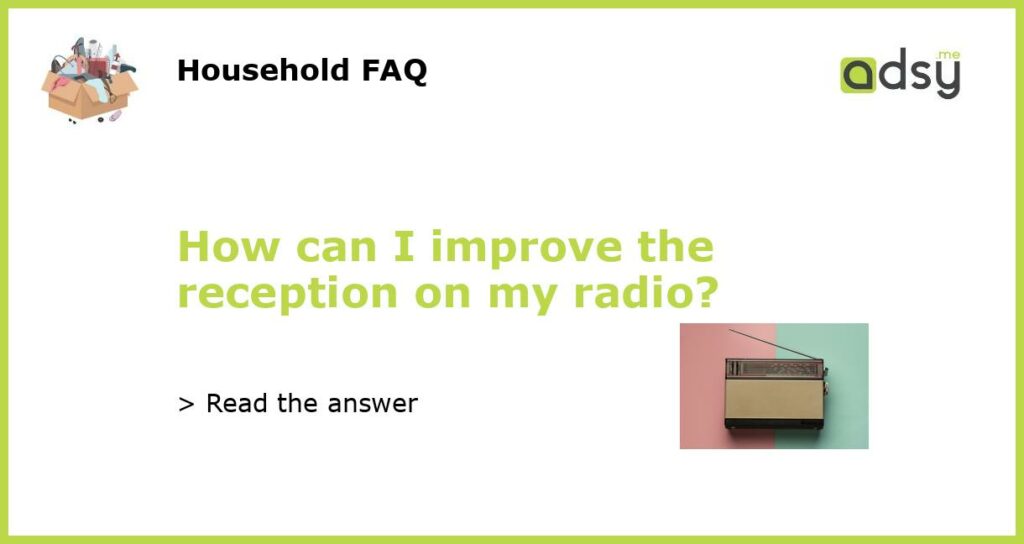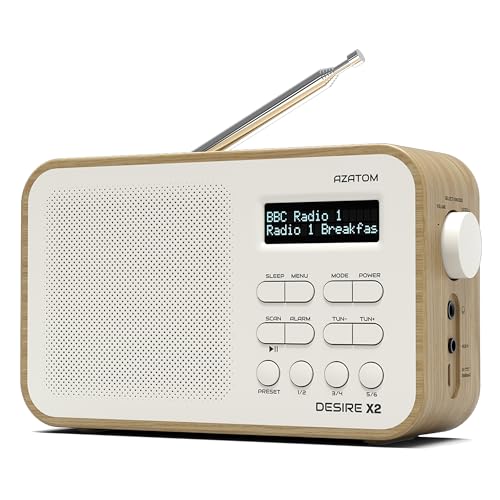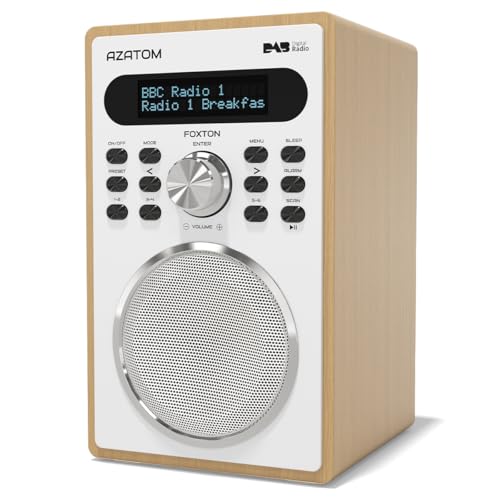Check the Antenna
One of the first things you should check when trying to improve the reception on your radio is the antenna. The antenna is responsible for picking up the radio waves and transmitting them to the radio receiver. If the antenna is damaged, dirty, or not properly positioned, it can affect the quality of the reception. Start by examining the antenna for any visible signs of damage or corrosion. If you notice any issues, you may need to replace or repair the antenna. Additionally, make sure that the antenna is properly positioned and extended to its full length.
Use an External Antenna
If you are still experiencing poor reception after checking the built-in antenna, you may want to consider using an external antenna. External antennas are designed to provide better reception by capturing radio waves more effectively. There are several types of external antennas available, such as dipole antennas, omnidirectional antennas, and directional antennas. The type of antenna you choose will depend on your specific needs and the location of your radio. Be sure to consult the manufacturer’s instructions or seek professional advice when installing an external antenna.
Adjust the Radio’s Tuning
Another way to improve the reception on your radio is by adjusting its tuning. Sometimes, the radio may not be tuned to the correct frequency, resulting in poor reception. To check if the radio is properly tuned, try adjusting the tuning knob or using the auto-tune function, if available. Keep in mind that the radio reception can be affected by the surrounding environment, such as buildings, trees, or other obstructions. Moving the radio or adjusting its position may help improve the reception by reducing interference.
Reduce Interference
Radio reception can be affected by various sources of interference. Common sources of interference include electronic devices, power lines, and even other radios or audio systems. To reduce interference and improve reception, try moving the radio away from other electronic devices, particularly those that emit electromagnetic waves. Additionally, avoid placing the radio near power lines or large metal objects, as these can also interfere with the reception. If you are using an AM radio, try rotating the radio or adjusting the position of its built-in antenna to find the best reception.
Consider a Signal Booster
If all else fails, you may want to consider investing in a signal booster to improve the reception on your radio. Signal boosters are devices that amplify the radio signals, allowing for better reception in areas with weak signals. There are various types of signal boosters available, such as indoor boosters, outdoor boosters, and portable boosters. Before purchasing a signal booster, make sure to check if it is compatible with your radio and if it complies with local regulations. Some boosters may require professional installation, so consider consulting an expert for assistance.






